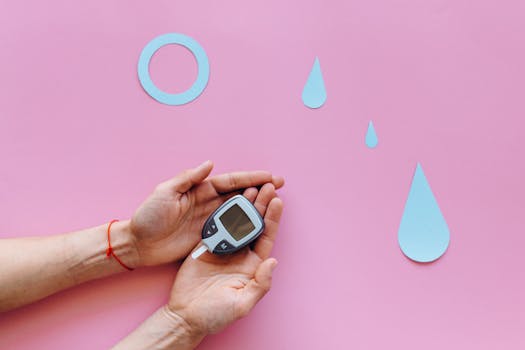
Understanding the Impact of Diabetes on Daily Life
Diabetes is a chronic condition that affects millions of people worldwide. Its impact extends beyond physical health, influencing daily routines, emotional wellbeing, and social interactions. In this article, we delve into the various ways diabetes can affect daily life and how individuals can effectively manage these challenges.
Table of Contents
- 1. The Physical Impact of Diabetes
- 2. Emotional and Mental Health Challenges
- 3. Social Life and Relationships
- 4. Dietary Adjustments and Meal Planning
- 5. Daily Routine and Time Management
1. The Physical Impact of Diabetes


People with diabetes must monitor their blood sugar levels regularly, which can be time-consuming and inconvenient. High or low blood sugar episodes can lead to dizziness, confusion, or even loss of consciousness, making it essential to manage these fluctuations carefully. Additionally, diabetes can cause long-term complications such as neuropathy, cardiovascular disease, and kidney damage, further complicating daily life and requiring ongoing medical attention.
2. Emotional and Mental Health Challenges

Moreover, the stigma associated with diabetes can lead to social withdrawal and isolation. Individuals may feel embarrassed about their condition or worry about how others perceive them, leading to decreased self-esteem and increased stress. It’s crucial for those with diabetes to seek support from healthcare professionals, support groups, or mental health counselors to manage these emotional challenges effectively.
3. Social Life and Relationships
Diabetes can also impact social interactions and relationships. Social situations involving food—such as parties, dinners, or gatherings—can be particularly challenging for those managing diabetes. Individuals may feel restricted in their food choices or may worry about how to explain their dietary needs to friends and family.
Furthermore, the unpredictability of blood sugar levels can make it difficult to engage in spontaneous activities. Friends and family may not understand the complexities of diabetes management, which can lead to feelings of frustration or isolation. Open communication about the condition is essential for maintaining healthy relationships and ensuring support from loved ones.
4. Dietary Adjustments and Meal Planning

Eating out can also pose challenges, as it requires individuals to make informed choices about menu items. Many people with diabetes find it helpful to carry healthy snacks to avoid blood sugar dips when they are on the go. Education about nutrition is crucial, as understanding how different foods affect blood sugar can empower individuals to make better dietary choices.
5. Daily Routine and Time Management

Establishing a consistent routine can help individuals manage their diabetes more effectively. Setting reminders for medication and blood sugar checks, planning meals ahead of time, and incorporating physical activity into daily life can all contribute to better management of the condition. Utilizing tools such as diabetes management apps can also assist in tracking progress and maintaining motivation.





